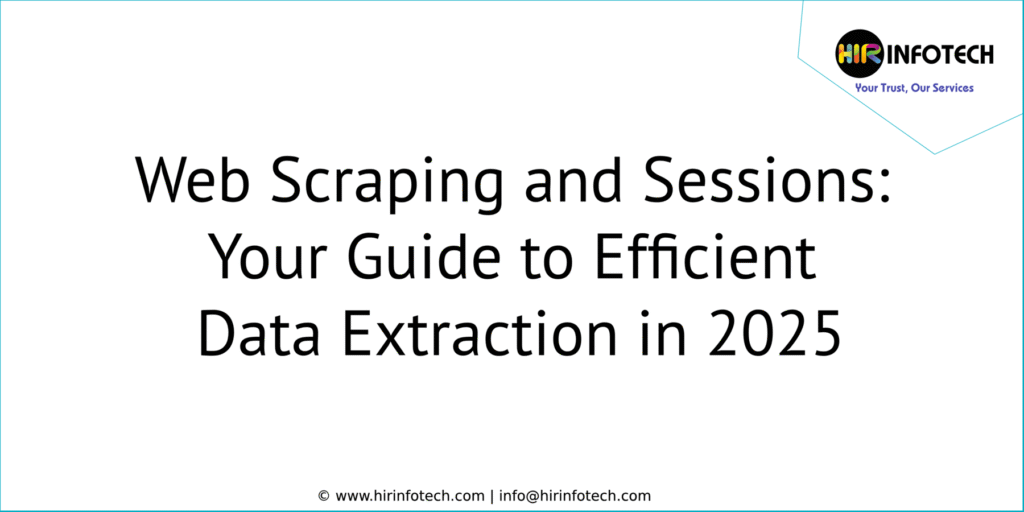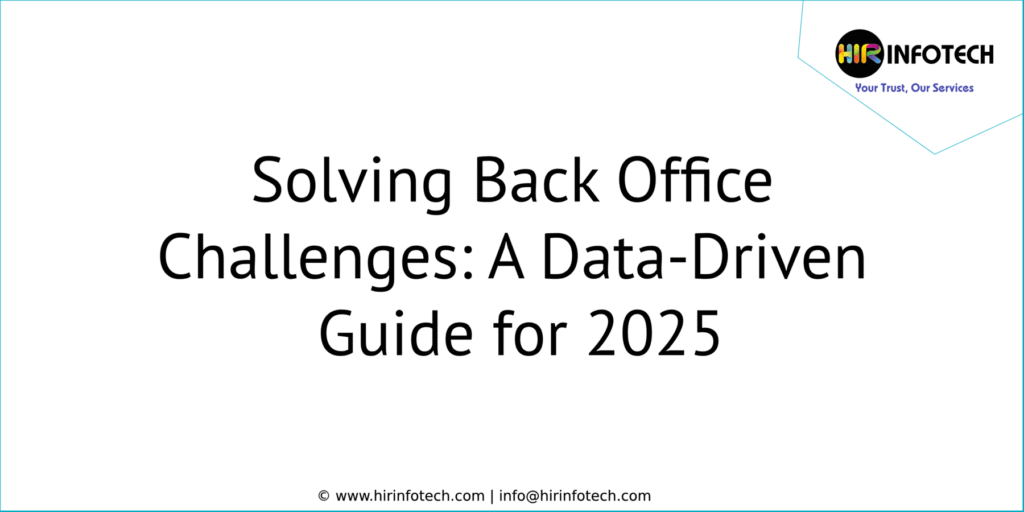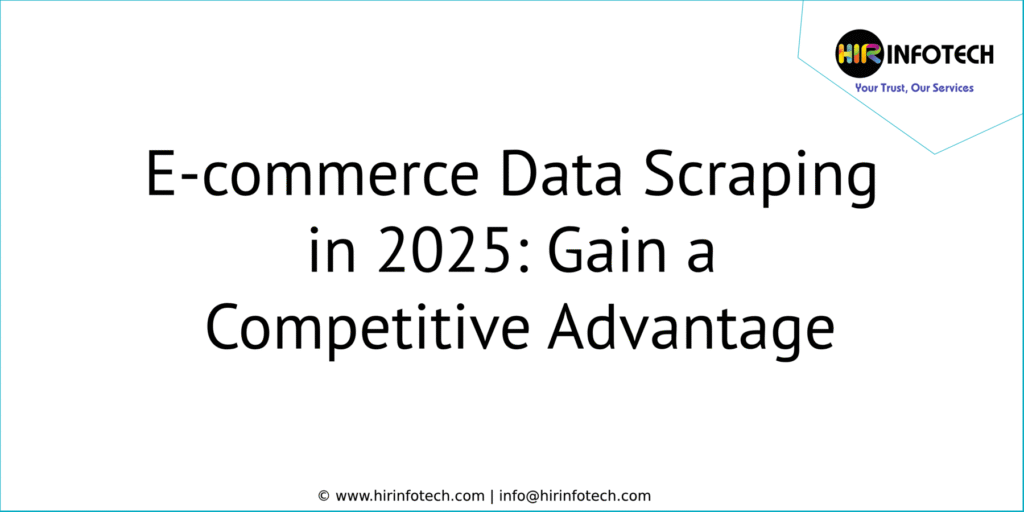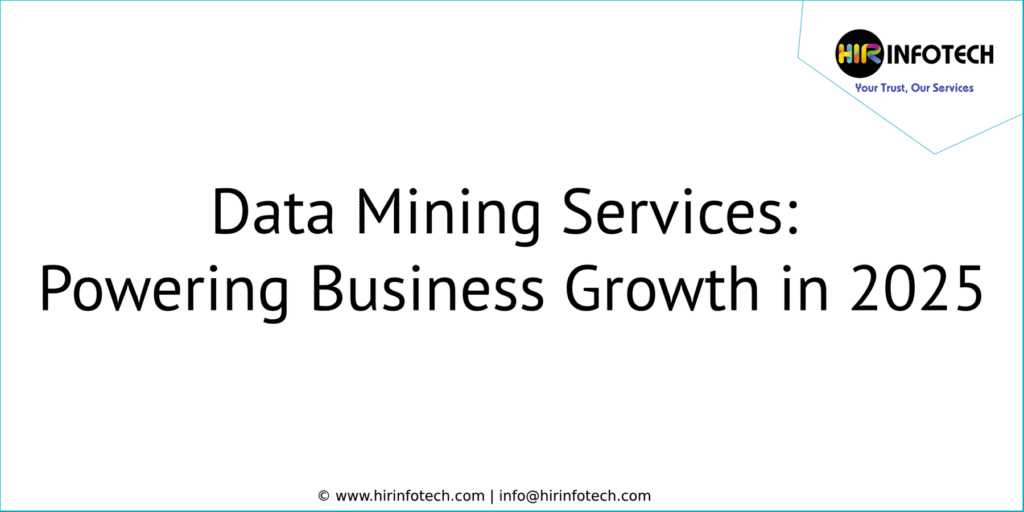
In today’s data-driven world, information is power. Companies across all industries need access to vast amounts of data. This data helps them make smart decisions and stay ahead of the competition. That’s where web scraping comes in. It is a powerful technique for automatically extracting data from websites. Let’s explore how web scraping, especially when combined with smart session management, is revolutionizing data solutions in 2025.
What is Web Scraping?
Think of web scraping as an automated way to collect information from websites. Instead of manually copying and pasting data, specialized software, called web scrapers, does the work for you. Web scrapers can quickly extract a wide range of information, including:
- Product details: Prices, descriptions, and images from e-commerce sites.
- Market trends: Real-time data on pricing and competitor activities.
- Contact information: Emails and phone numbers for lead generation.
- News and articles: Keeping track of industry updates.
- Social media data: Understanding customer sentiment and trends.
Why is Web Scraping Important for Businesses in 2025?
The sheer volume of data online is growing exponentially. Manually collecting this data is simply not feasible. Web scraping offers numerous benefits:
- Saves Time and Resources: Automate data collection, freeing up employees for other tasks.
- Improves Accuracy: Reduces human error associated with manual data entry.
- Provides Real-Time Insights: Access up-to-date information for informed decision-making.
- Boosts Competitiveness: Gain insights into market trends and competitor strategies.
- Enhances Data Analysis: Collect large datasets for advanced analytics and business intelligence.
- Lead Generation: Web scraping identifies potential customers by extracting contact details from various online sources.
- Content Aggregation: News websites and content aggregators use web scraping to gather articles.
- Research and Development: Companies use web scraping to research new products, technologies, and market opportunities.
Understanding Web Sessions
Now, let’s talk about sessions. A session is like a continuous conversation between your browser and a website. This is important for web scraping. When you visit a website, the site needs a way to remember who you are and what you’re doing. That is what a session does.
- Sessions Track User Activity: They store information about your interactions. This might include items in your shopping cart, or your login status.
- Unique Session IDs: Each session gets a unique ID. This helps the website keep track of individual users.
- Temporary Storage: Session data is usually stored on the server temporarily.
- Session Timeouts: Sessions often end after a period of inactivity.
How Do Sessions Work?
When you first visit a website, the server creates a new session for you. It assigns you a unique session ID. The website uses this ID to keep track of your activity. The server then sends this session ID to your browser. Your browser stores it, usually as a cookie. Each time you click a link or submit a form, your browser sends the session ID back to the server. This allows the server to retrieve your session data and maintain a consistent experience.
The Difference Between Sessions and Cookies
While both sessions and cookies are used to store information, there are key differences:
| Feature | Cookies | Sessions |
| Storage | Stored on the user’s computer (client-side) | Stored on the web server (server-side) |
| Size Limit | Typically limited to around 4KB | Can store larger amounts of data |
| Security | Less secure; can be accessed by the user | More secure; data is not directly accessible to the user |
| Lifespan | Can persist for a long time (even after the browser is closed) | Usually temporary; expire after a period of inactivity or when the browser is closed |
| Dependency | Not dependent on sessions | Often rely on cookies to store the session ID |
| Data Type | Store small pieces of data like user preferences | Store more complex data like shopping cart contents |
Why are Sessions Important for Web Scraping?
When scraping websites, maintaining sessions can be crucial, especially for sites that require login or have personalized content. Here’s why:
- Accessing Protected Content: Many websites require users to log in before accessing certain data. Web scrapers need to manage sessions to simulate a logged-in user.
- Maintaining State: Some websites rely on session data to track user progress. This is important when scraping multi-page forms or complex workflows.
- Avoiding Detection: Websites often have anti-scraping measures in place. Proper session management can make your scraper appear more like a regular user, reducing the risk of being blocked.
How Web Scraping Uses Sessions in 2025
In 2025, web scraping is more sophisticated than ever. Advanced techniques use sessions to efficiently extract data while avoiding detection. Here are two common approaches:
1. Rotating Sessions
Imagine you need to scrape thousands of pages from a website. Sending too many requests from a single IP address in a short period can trigger anti-scraping measures. Rotating sessions are a solution to this problem.
- Multiple IP Addresses: Rotating sessions use a pool of different IP addresses. This makes it appear as if the requests are coming from different users.
- Proxy Servers: These act as intermediaries between your scraper and the target website. They mask your real IP address.
- Session Management: Each IP address is associated with a new session. This helps to further mimic organic user behavior.
- Avoiding Bans: By rotating IP addresses and sessions, you can avoid triggering website security measures that could block your scraper. This ensures consistent data extraction.
2. Sticky Sessions
Sometimes, you need to maintain a single session for an extended period. This is where sticky sessions come in.
- Consistent IP Address: Sticky sessions keep the same IP address for a specific duration. This is important for tasks that require a continuous session.
- Longer Session Duration: Unlike rotating sessions, sticky sessions are designed to last longer. This is crucial when you need to interact with a website over an extended period.
- Ideal for Account Management: Sticky sessions are useful for tasks like managing social media accounts or interacting with e-commerce platforms.
Advanced Web Scraping Techniques in 2025
The field of web scraping is constantly evolving. Here are some advanced techniques that are gaining prominence in 2025:
- Headless Browsers: These are web browsers without a graphical user interface. They allow scrapers to render JavaScript and interact with dynamic websites.
- Machine Learning: ML algorithms are being used to improve the accuracy and efficiency of web scraping. For example, they can help identify patterns in website structures and automatically adapt to changes.
- CAPTCHA Solving Services: These services use AI to automatically solve CAPTCHAs. These are challenges designed to distinguish between humans and bots.
- Distributed Scraping: This technique involves distributing scraping tasks across multiple machines. It allows for faster and more scalable data extraction.
- API Scraping: More and more websites are providing APIs (Application Programming Interfaces). These offer a structured way to access data. API scraping is becoming increasingly popular as it is often more reliable and efficient than traditional web scraping. For more information on API, you can refer to this guide from RapidAPI.
Ethical Considerations in Web Scraping
While web scraping offers numerous benefits, it’s essential to be mindful of ethical considerations:
- Respect robots.txt: This file, found on most websites, indicates which parts of the site should not be scraped.
- Avoid Overloading Servers: Send requests at a reasonable rate to avoid putting excessive strain on the target website’s servers.
- Terms of Service: Always check the website’s terms of service to ensure that web scraping is permitted.
- Data Privacy: Be mindful of data privacy regulations, such as GDPR. Ensure you are handling personal data responsibly. You can find further details on GDPR from the European Commission.
The Future of Web Scraping
Web scraping is continually evolving. The future will likely involve even greater use of AI and machine learning. This will make scrapers more adaptable and efficient. The rise of voice search and other new technologies will also create new opportunities and challenges for web scraping. As websites become more sophisticated, anti-scraping measures will also become more advanced. Web scrapers will need to adapt to stay ahead of the curve.
FAQs About Web Scraping and Sessions
- What is the best programming language for web scraping?
- Python is widely considered the best language for web scraping due to its extensive libraries (like Beautiful Soup and Scrapy) and ease of use.
- Is web scraping legal?
- Web scraping exists in a legal gray area. It generally depends on the website’s terms of service, how the data is used, and whether the scraping activity overburdens the website’s servers. Always check the website’s terms of service and robots.txt file before scraping.
- How can I avoid getting blocked while web scraping?
- Use rotating proxies, respect robots.txt, implement delays between requests, and use headless browsers to mimic human behavior.
- What are the most common challenges in web scraping?
- Dealing with dynamic websites, handling CAPTCHAs, avoiding IP bans, and adapting to website structure changes are common challenges.
- What is the difference between web scraping and web crawling?
- Web crawling is the process of discovering and indexing web pages. Web scraping is the process of extracting specific data from those pages.
- What are the benefits of using a web scraping service?
- Web scraping services handle the technical complexities of scraping. This allows you to focus on using the data rather than building and maintaining scrapers.
- How much does web scraping cost?
- The cost of web scraping varies depending on factors like the complexity of the project, the volume of data required, and whether you build your own scrapers or use a service.
Conclusion
Web scraping is a powerful tool for businesses in 2025. It provides access to valuable data that can drive informed decision-making and fuel growth. Understanding how sessions work is crucial for efficient and ethical web scraping. By combining advanced techniques with responsible practices, companies can unlock the full potential of web scraping. This helps gain a competitive edge in today’s data-driven landscape.
Need help with your web scraping and data extraction needs? Contact Hir Infotech today! Our team of experts can provide customized data solutions tailored to your specific requirements. We leverage the latest technologies and best practices to deliver accurate, reliable, and timely data. Let us help you unlock the power of data for your business.



